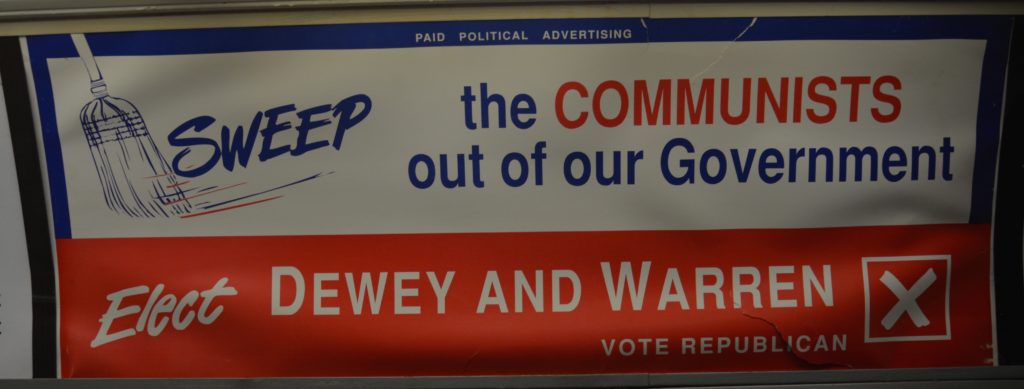
Our current political and public discourse is in a bad way, and a lot of people are proposing that the solution is a re-embrace of “civility” as a cultural norm. The problem with these arguments is that its advocates use civility as a “God” term—meaning it isn’t very precisely defined, but is always good. That vague understanding combined with a passionate commitment means we can’t talk usefully about the times that civility was used to exclude, dismiss, and even criminalize valid criticism of people and institutions.
Civility, like its evil twin demagoguery, is sometimes defined in terms of intention, sometimes word choice, the feelings of the critic, the feelings of the rhetor, imagined norms, or whatever happens to be useful to condemn out-group rhetoric and praise in-group rhetoric. The shifting definition means that there is no such thing as out-group civility or in-group incivility (or if in-group incivility is admitted, it’s justified in some way).
I’m really tired of well-intentioned calls for “civility” that are most likely to have no impact other than increasing in-group self-righteousness.
Too many calls for civility don’t actually define civility (or they define it through a double negative—it’s not incivility); they never give examples of a civil argument with which they disagree, so “civility” and “incivility” are just terms to describe in- v. out-group rhetoric; their narratives of when politics became uncivil are unintentional exposures that they don’t really know much about the history of rhetoric or public discourse; they don’t acknowledge that a speech they insist was civil was, in its reception, seen as incivil; their notion of civility muddles reception (incivility hurts feelings), word choice (incivil rhetoric uses prohibited words, boosters), and argumentation (incivility misrepresents the situation, relies heavily on fallacies of relevance and deflection).
If you have an incoherent description of the ill, then it’s unlikely you’re going to find a good plan to solve that ill. If central to both your ill and your plan is a term you can’t define, you’re gerfucked.
Slavers whined about the incivility of their critics, and, in fact, passed a gag rule in an attempt to silence criticism of slavery in Congress. Critics of slavery in many states might be expelled, lynched, fined, their businesses ruined–southern civility did not extend to allowing criticism of slavery. As William Chafe long ago showed, civility worked against civil rights and in favor of segregation. When people argue for censoring textbooks, prohibiting discussions of genocide, slavery, segregation, and racism, they do so on the grounds of “civility.” We have to decide what we want to civility to do—strengthen or undermine current hierarchies? Enable genuine disagreement or make it more difficult?
There are a lot of ways of thinking about civility. Two are particularly important for our current situation: civility as rules of deference that vary depending on where the rhetor is in a hierarchy; or, civility as equal treatment regardless of any hierarchy of power or position. The hierarchical way of thinking about civility assumes that civility is deference (especially verbal), and that the civility rules should always be stricter for the person/group lower in the hierarchy. A professor calls students by their first name, but the students use title and last name for the professor. A boss can shout at an employee, but the employee can’t shout at the boss. There are rules of civility for the person higher in the hierarchy, but there are fewer of them, and the penalties are minor if they are violated.
Another way of thinking about civility is egalitarian. The rules of civility apply equally to all—it is just as much a violation of civility for a manager to shout at an employee as vice versa. Whatever exceptions are made for rules about shouting apply to all equally.
So, how should we define civility? I’d suggest it’s useful to think of civility as “politeness rules about who can say what to whom in what circumstances.” If we define it that way, then it isn’t necessarily good. It can be used for silencing dissent, justifying injustice, enabling violence. If we think of it that way, then it isn’t even something absent from our current situation. The problem isn’t that civility is absent; the problem is the implicit model of civility people are using: doubly hierarchical.
What we’re experiencing right now is a doubly hierarchical model of civility. In-group rules of civility are weaker than they used to be, but there are still hierarchies (and the more SDO a group is, the more the group has an internal hierarchical approach to civility). But the main hierarchy is in- v. out-group. The out-group is held to higher standards of civility than the in-group. Rhetoric with which we agree is held to lower standards of civility than rhetoric with which we disagree.
In a demagogic culture, standards of “civility” are determined by in- or out-group membership. Anything any in-group rhetor or group does is civil, and exactly the same rhetoric on the part of out-group rhetors is incivil. Rarely is that disparate standard acknowledged. When it is, people try to justify it on the grounds that we are in an existential war, a way of framing policy disagreements that is disastrous for democracy (the argument made here: the only book of which I am unashamably proud).
Unless we can separate standards of civility from in-group membership, then even if we do somehow manage to increase “civility,” it will simply make our current situation worse.

